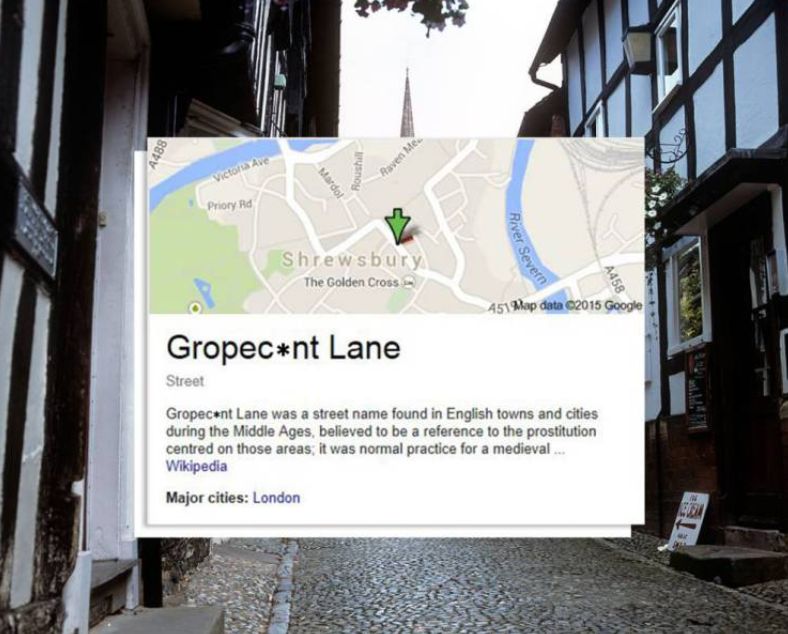
Why are people so offended by the word cunt? A psychologist explains
Someone should text this to Ellie
Cunt is one of the most heavily tabooed words in the English language, it’s the Nigel Farage of swear words. If you were to call someone a wanker or a bastard – as an insult – they’d say it was rude. But call someone a cunt and they’d probably look at you like you’d just thrown a grenade at them.
Last week on Love Island, Ellie called Georgia an “ugly cunt” and boy did the people go wild about it.

The moment it all kicked off
On dictionary.com the definition of cunt even comes with a ‘usage alert’: “All senses of this word are vulgar slang and are very strongly tabooed and censored…There are many words used to refer to people in sexual terms. However, to call a person a cunt, especially a woman, is one of the most hateful and powerful examples of verbal abuse in the English language.”
Is it actually the worst thing to call a woman though? Really? While vagina describes part of the interior sexual organ, and vulva describes the exterior, the word cunt encompasses the whole thing – it’s the only word that describes the whole shebang. More than this, vagina literally means “sword sheath”, in other words, a “dick-passage”, so you could say cunt is actually the nicer and more atomically correct word to use.
Semantically speaking cunt is simply the female equivalent of dick, as both are signifies for a sexual organ, and when you look at it like that the whole hoo-hah surrounding the use of cunt in conversation does seem somewhat strange.
James Joyce, D.H. Lawrence, Shakespeare and Chaucer all used the word cunt in their works of literature. It’s an expressive, highly powerful, and frankly empowering word, and once you understand the origins of cunt you soon realise it’s certainly shocking but hardly scandalous.
Whatever you think, it’s clear the C-word has been firmly placed by mainstream society on the metaphorical shelf of things that are completely unacceptable to say. But why do so many people shudder at the sound of this clunky monosyllabic word? What exactly is it that people find so offensive?
I asked Dr Richard Stephens from Keele University, who’s researched into the psychology of swearing for his book, Black Sheep: The Hidden Benefits of Being Bad, to explain.

Credit: Andrew Weekes
Why are people so offended by the word cunt?
There are many taboo words and phrases, that is, words that people find offensive or obscene. The more offensive the word the more taboo it becomes. In my opinion “cunt” is considered very offensive because of its strong misogynistic overtone.
When did we start being offended?
“Cunt” first appeared in a written-down form c.1230 in the London street name “Gropecuntlane”. This tells us two things; first that this was a location frequented by prostitutes and their clients; and second that “cunt” was a publically acceptable word at that time. “Cunt” also was used in medical writing in the 1400s as the anatomical nomenclature for the vagina. I don’t know when “cunt” crossed over from acceptability to taboo.

Why have certain swear words, such as fuck, seemingly lost their shock value, while cunt is still so strongly tabooed and censored?
It’s very context specific. Saying “fuck” at a football match would cause very few ripples whereas saying it during a lecture at a university, (which I sometimes get to do quite legitimately when talking about my research) provokes more of a reaction. But language evolves and the more a shocking word is used the more its shock value is likely to ebb away as we become habituated to it.
Is it a cultural thing, are Americans more offended by the the use of cunt than Brits?
I don’t know that Americans are more offended than Brits but there are cultural elements to this. For example, it is likely that more so in communities that outlaw misogyny can “cunt” carry the level of offence that it does. In Holland “cancer” is used as a swear word which is not something I have come across in the UK.
Do the sounds that swear words make contribute to their offensiveness?
This is the “plosiveness” theory of swearing – the idea that it is something about the specific combination of vowls and consonants, such as making a hard sound, that contributes to the offensiveness of the word. I don’t know of any studies that have assessed this. However, a recent paper investigated why people dislike the word “moist” and tested out whether their dislike of the word was based on the sound. However when asked to rate similar sounding words like “foist” and “hoist” they had no problem with these words. In my opinion swearing would be similar and it is simply the taboo-ness of the word (by which I mean a combination of its meaning and society’s acceptance of the word itself) that makes it offensive and not how it sounds.

“Slang and Its Analogues, Past and Present,” published circa 1890
